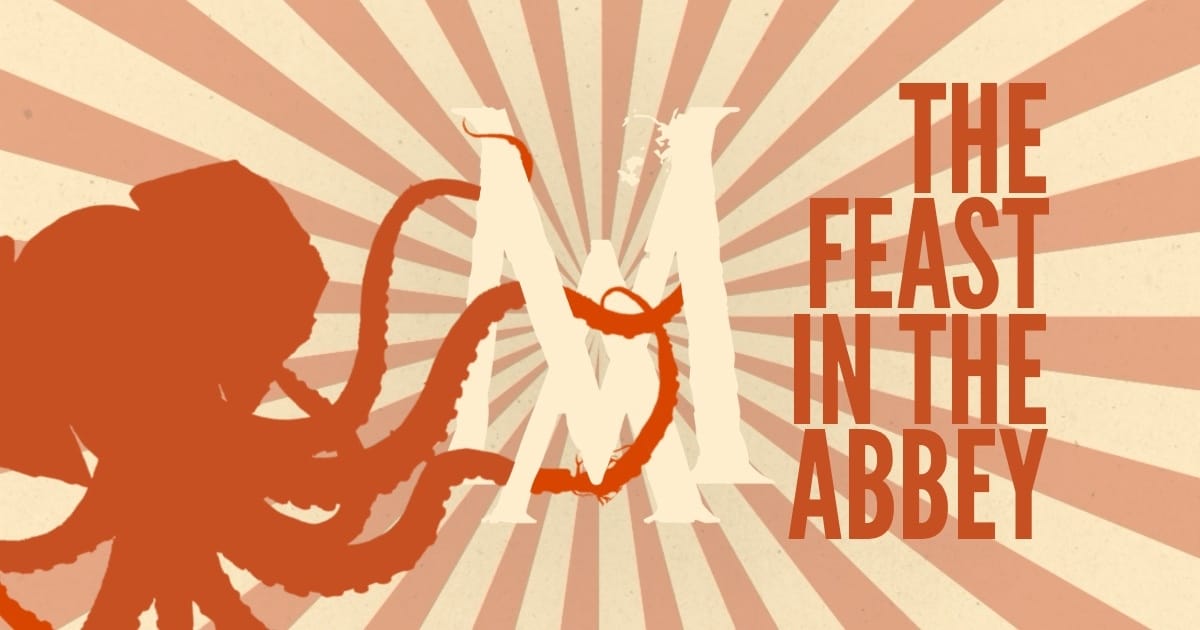

There are a number of authors who helped build the mystique around horror in the early- to mid-1900s, paving the way for the horror we love and appreciate today. Robert Bloch is one such author. Writing alongside H. P. Lovecraft, and in devotion to him, Bloch crafted tales that are once simple and horrifying in their conclusions. The Feast in the Abbey is one such story. We follow a weary traveler who, besieged by the sudden onset of a storm, comes upon and is welcomed into a monastery of peculiar origin. What transpires within its wall is nothing short of nightmarish, but our protagonist does not realize the trouble in which they find themselves until it is too late.
The story is at once curious and terrible, in a number of ways:
“Terrible,” in the sense of terror or horror, at the revelation of the reality in which they have been immersed, and
“Terrible" in that Bloch, being a product of his time and a ready accomplice to its blatant racism, writes with little to no concern for tropes permeating the pulp fiction of the day.
Why do we concern ourselves with such literature if it presents or includes unsavory themes? One problem with inquiries of this kind is the idea that anything problematic should be avoided whatsoever, and may the aggressors be damned. Certainly, no racist should have the benefit of being celebrated in any sense. But neither should we outright dismiss anything produced by such a one based solely on their views.
When we revisit work such as The Feast in the Abbey, The Shambler From the Stars which we will read in a few week, or even such classics as The Call of Cthulhu, we are exploring the origins of such monstrous works of horror that have arisen since then. We recognize that no work is without influence. We learn to appreciate the prowess with which others have written their ghastly tales while recognizing no great work is without its faults. We learn we can enjoy a piece of fiction while simultaneously being critical of it. By our appreciation, we grow the genre in which the story exists, and by expressing our criticism and dissatisfaction, we assist in the genre’s evolution.
In reading the following story, savor the vocabulary, the grammar, the structure. Relish the horror expressed by the protagonist upon their revelation. And firmly condemn the outright bigotry that once plagued the author and his nation of origin, and remains to this day an issue we actively fight and defend against.
Should you so desire to delve deeper, you can start with the introductory essay on the topic, Of Monsters and Madmen. More articles will follow as this series of stories unfolds and expands.
In the meantime, we here at the Calamity rate this story 🤡🤡 on the JEST rating system. We would otherwise rate it a single 🤡 if not for the racist elements. Proceed at your leisure … and caution …





